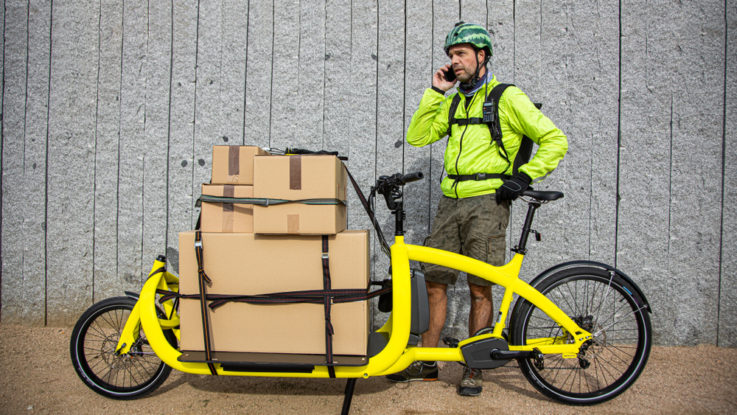
Transport for London (TfL) recently presented its new plan to promote and expand the use of cargo bikes within the city. TfL plans to work with the city boroughs, businesses, and freight industries to ensure more goods are delivered using safe, clean, and efficient modes of transport.
Currently, 90% of goods in London are transported by road, negatively impacting air quality and increasing traffic. Cargo bikes offer a cleaner alternative, help companies to complete deliveries faster and at a lower cost, and can contribute to making the city’s streets safer and more attractive for pedestrians and cyclists.
TfL hopes that the implementation of the plan could see cargo bikes replacing up to 4% of delivery vehicle kilometers by the year 2030 – with the highest growth expected in Central London where they could replace up to 17% by the same year. This shift is expected to result in carbon savings of up to 30,000 tonnes of CO2 a year by the year 2030.
“Freight and servicing are the lifeblood of London’s economy but also contribute to air pollution, carbon emissions and traffic congestion. We are determined to provide a green, healthy and sustainable future for all Londoners and cargo bikes can play a vital role in cutting carbon emissions, air pollution and road danger,” said Christina Calderato, TfL’s Director of Strategy and Policy.
Key actions in the plan include:
- developing a London safety standard for cargo bikes;
- providing space – such as micro-hubs and parking – to support last-mile operations;
- monitoring key cargo bike routes to identify usage patterns and project future growth;
- ensuring adequate capacity for cargo bikes when designing future cycling schemes;
- promoting cargo bikes when planning schemes such as Low Traffic Neighborhoods (LTNs); and
- providing businesses with the tools and information to confidently make the switch to cargo bikes.
“Cargo bikes are no longer a niche concept, and they can be real game changers when it comes to delivering freight and servicing trips. Not only do they provide environmental benefits by not contributing to air pollution, they also make journeys more efficient, and present a much lower risk of danger to people walking and cycling than vans and HGVs (heavy goods vehicles),” said Will Norman, Walking and Cycling Commissioner. “I’m delighted that TfL is launching this action plan to explore how we can grow the use of cargo bikes on our road, to help both the environment and the health of Londoners, and build a better, safer, greener London for everyone.”